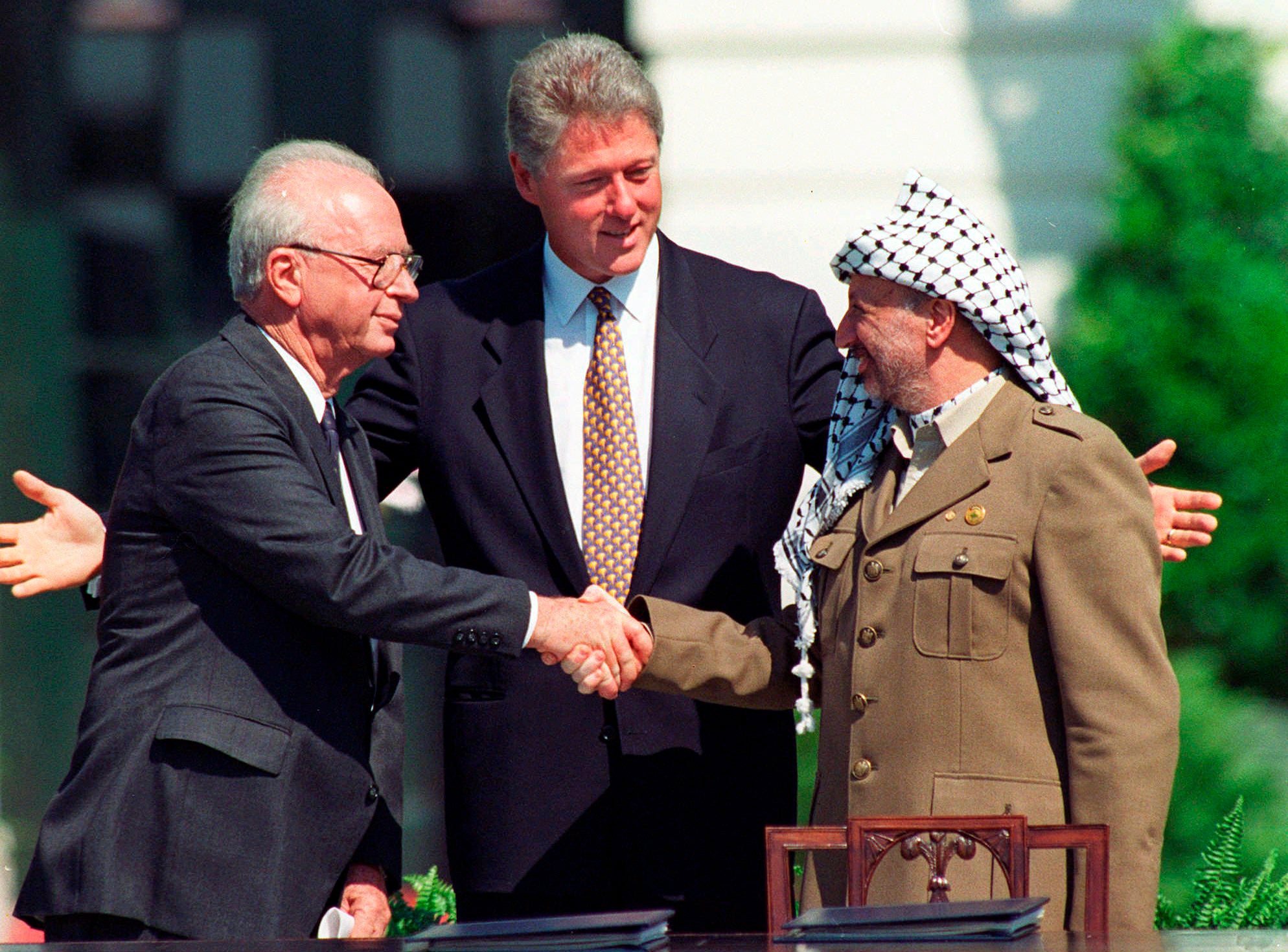30 years after Oslo, Israeli foreign minister rejects international dictates on Palestinian issue
Israel’s foreign minister has said that Israel would not cave in to foreign dictates on its treatment of the Palestinians

Your support helps us to tell the story
From reproductive rights to climate change to Big Tech, The Independent is on the ground when the story is developing. Whether it's investigating the financials of Elon Musk's pro-Trump PAC or producing our latest documentary, 'The A Word', which shines a light on the American women fighting for reproductive rights, we know how important it is to parse out the facts from the messaging.
At such a critical moment in US history, we need reporters on the ground. Your donation allows us to keep sending journalists to speak to both sides of the story.
The Independent is trusted by Americans across the entire political spectrum. And unlike many other quality news outlets, we choose not to lock Americans out of our reporting and analysis with paywalls. We believe quality journalism should be available to everyone, paid for by those who can afford it.
Your support makes all the difference.Israel's foreign minister on Wednesday said that Israel would not cave in to foreign dictates on its treatment of the Palestinians — in comments that came in a meeting with his Norwegian counterpart coinciding with the 30th anniversary of the Oslo peace accords.
The remarks by Foreign Minister Eli Cohen underscored the deterioration of Mideast peace efforts since the historic interim peace deal. Substantive negotiations have not taken place in years, and Israel is led by a far-right government opposed to Palestinian statehood.
“Israel will not submit to external dictates on the issue of the Israeli-Palestinian conflict,” Cohen said in the meeting with Norwegian Foreign Minister, Anniken Huitfeldt, according to a statement from his office.
Cohen told Huitfeldt that Israel will continue to work toward normalizing relations with other countries in the Middle East. Israel reached diplomatic accords with four Arab countries under the U.S.-brokered Abraham Accords in 2020 and is now hoping to establish official ties with Saudi Arabia.
But in an apparent reference to the Palestinians, who have criticized the Abraham Accords, Cohen said "states and actors that don't participate in expanding and deepening the circle of peace and normalization will simply be left behind and become irrelevant.”
Huitfeldt described her meeting with Cohen as “interesting.”
According to her office, she expressed her concern to Cohen over Israeli settlements in the West Bank. The two also discussed the possibility of renewing Israeli-Palestinian dialogue, she said.
Cohen's rejection of international input on the conflict came exactly three decades after Israel and the Palestinians signed an interim peace deal on the White House lawn.
The Oslo accords, negotiated secretly in Norway, were meant to pave the way to a two-state solution between Israel and the Palestinians.
“The notion that Israel is not going to accept any externally imposed settlement on the Palestinian issue was essentially the opposite of what the Oslo process reflected,” said Aaron David Miller, an American diplomat who helped negotiate the agreement. Miller is now a senior fellow at the Carnegie Endowment for International Peace.
A handshake between Israeli Prime Minister Yitzhak Rabin and Palestinian Liberation Organization leader Yasser Arafat, conducted under the beaming gaze of U.S. President Bill Clinton, marked the signing of the agreement, which created the Palestinian Authority and set up self-rule areas in the Palestinian territories. The Palestinians seek the West Bank, east Jerusalem and the Gaza Strip — areas captured by Israel in 1967 — for a future state.
Several rounds of peace talks over the years all ended in failure, and 30 years later, peace seems more distant than ever.
Under Prime Minister Benjamin Netanyahu’s far-right government, Israel has stepped up settlement construction in the occupied West Bank, with government ministers openly vowing complete annexation of the territory.
The West Bank is in the midst of the most violent stretch of Israel-Palestinian violence in nearly 20 years, while the Palestinian Authority is weak and unpopular. Meanwhile, the Hamas militant group, which opposes Israel's existence, has controlled Gaza since taking control of the area from the Palestinian Authority in 2007.
Given the current conflict, any peacemaking efforts by the two sides aren’t “anywhere near being ready for prime time,” Miller said.
Subscribe to Independent Premium to bookmark this article
Want to bookmark your favourite articles and stories to read or reference later? Start your Independent Premium subscription today.